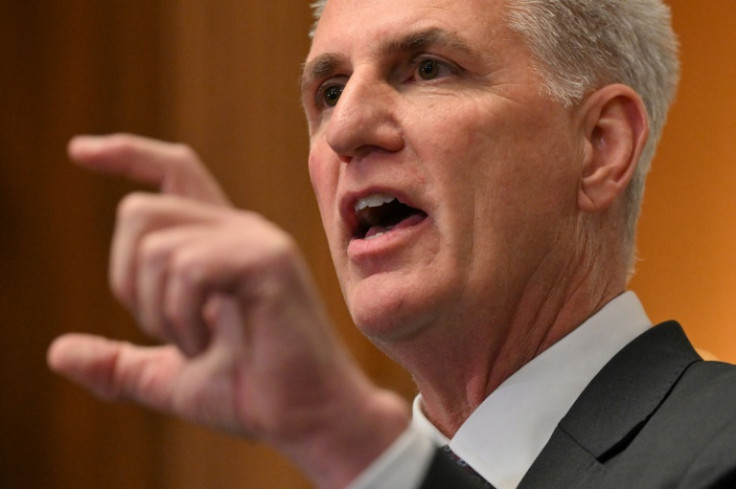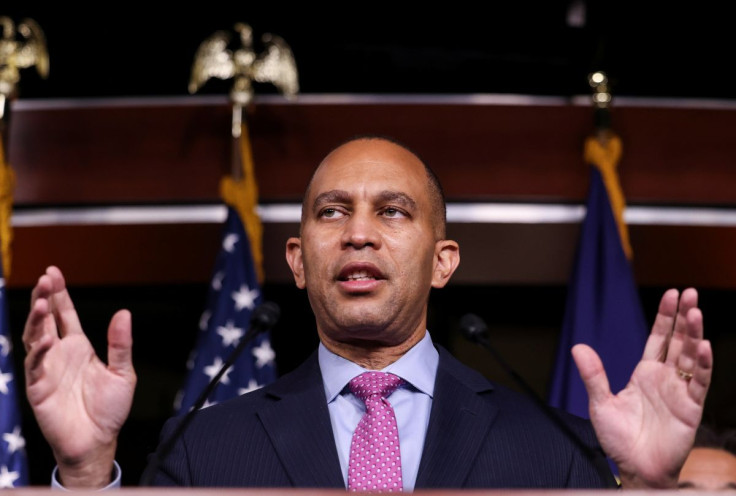Government Shutdown Nears As Congress Fail To Reach Agreement

With only three days for Congress to approve legislation that would prevent the U.S. to suspend non-essential activities, party leaders are sending signals that there's no deal in sight.
Republican House of Representatives Speaker Kevin McCarthy criticized an alternative Senate bill that would fund the government temporarily.
"I look at the current Senate bill that does nothing when it deals with border security," McCarthy told CNBC in an interview Thursday, still showing optimism on a solution. "I never give up. If we have to play in the overtime to get it right, I'll do just that."
Democrats and Republicans in Senate are working on an alternative measure that would fund the government through Nov. 17. The proposal authorizes about $6 billion for domestic disaster responses and another $6 billion in Ukraine aid.
McCarthy is instead trying to pass four bills that significantly cut government spending. Those bills have little chance of becoming law as it has no support from President Joe Biden and Democrats.
Impeachment Inquiry
House Minority Leader Hakeem Jeffries accused Republicans of "wasting time" on President Biden's impeachment, instead of working to fund the government.
"They're wasting time and taxpayers dollars in an illegitimate impeachment inquiry when we're about 48 hours away or so from an extreme MAGA Republican government shutdown," Jeffries told reporters Thursday in Washington.

House Republicans held Thursday the first hearing in the impeachment inquiry of Biden, focusing on business dealings of the president's son Hunter Biden.
In May, Biden and McCarthy agreed to a budget of $1.59 trillion for the fiscal year in an initial attempt to avert a government shutdown this year. Since then, a group of Republican lawmakers have been pushing for additional $120 billion in cuts.
Moody's
If lawmakers don't approve by Sept. 30 legislation to fund government activities in the next fiscal year, government activities that are considered non essential will be suspended and employees won't get paid.
Moody's warned that a government shutdown would negatively affect the US creditworthiness.
"While government debt service payments would not be impacted and a short-lived shutdown would be unlikely to disrupt the economy, it would underscore the weakness of US institutional and governance strength relative to other Aaa-rated sovereigns that we have highlighted in recent year," Moody's said in a report published Sept. 25. "A prolonged shutdown would likely be disruptive both to the US economy and financial markets."
Former President Donald Trump, who is the leading candidate for the 2024 Republican nomination, is in favor a shutdown, posting on his Truth social media site on Sept. 25, "unless you get everything, shut it down!"
The previous government shutdown was the longest and occurred during the Trump administration. It lasted 35 days, ending in January 2019.
© Copyright IBTimes 2025. All rights reserved.




















